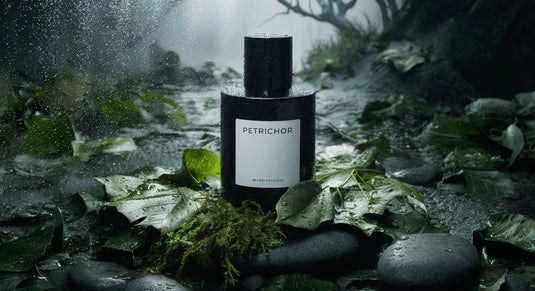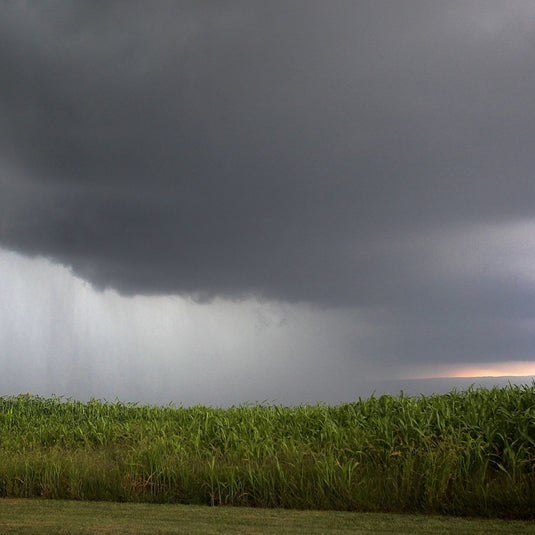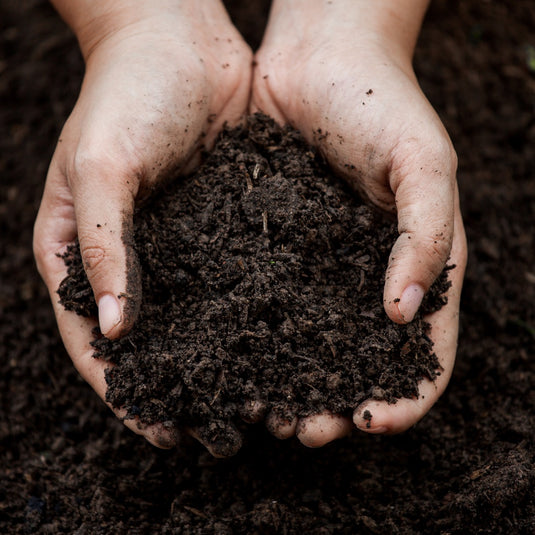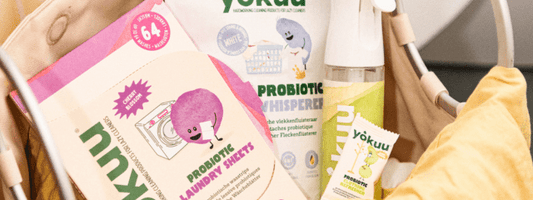Prendre une grande respiration après une averse rafraîchissante révèle un arôme terreux et inimitable qui transporte beaucoup de gens vers des souvenirs d'enfance passés à jouer dehors. Cette odeur envoûtante, connue sous le nom de pétrichor, fascine les gens depuis des siècles. La source de cet arôme ? Le monde des microbes.

Le plus beau parfum de la nature
Petrichor describes the pleasant scent that arises when rain hits dry soil. The main compound responsible for this scent is geosmin, a term derived from the Greek words for earth, “ge,” and odor, “osme.” Geosmin is produced by a group of soil-dwelling bacteria known as Actinomycetes. These bacteria play a crucial role in decomposing organic matter and recycling nutrients back into the ecosystem.
Le rôle des Actinomycètes
Actinomycetes are filamentous bacteria that thrive in soil. They break down complex organic materials, such as dead plants and animals, into simpler substances that can be absorbed by plants, maintaining soil fertility and ecosystem health. When it rains, Actinomycetes produce spores that are released into the air along with geosmin. Humans can detect geosmin even at very low concentrations, which explains the pronounced smell after a rainfall.

Pourquoi les microbes produisent-ils de la géosmine ?
Until very recently, scientists didn’t know why microbes make geosmin. In 2020, scientists in Sweden discovered that Streptomyces bacteria produce geosmin to attract small invertebrates called springtails in the soil to carry their spores. This helps the bacteria reproduce by dispersing their spores to new locations. Other organisms can detect geosmin too. It attracts mosquitos but repels fruit flies, helping them navigate their environments in ways that benefit their survival.
La géosmine dans notre vie quotidienne
Geosmin can be found in many places besides soil, including lakes, rivers, drinking water, wine, fish, beets, mushrooms, and carrots. If a vegetable or fruit smells like dirt, you can pretty safely assume it’s geosmin.
Most people enjoy the earthy aroma of geosmin when smelling soil in the garden or rain. A synthetic version is added to perfumes, and you can even find it in candles. It brings a sense of nature indoors, making environments feel fresh and natural.
As much as we love the smell of geosmin, it is often unpleasant when tasted in food, particularly in fish and drinks like water and wine. Geosmin poses a significant problem for the food, beverage, aquaculture, and water industries. Many studies focus on finding ways to remove geosmin from consumables. Adding acid such as vinegar or lemon juice to geosmin-containing food or drink can neutralize its flavor, making it more palatable.
Tout cela grâce aux microbes
The interaction between rain and soil bacteria is a perfect example of how microbes quietly shape our environment. These tiny organisms are all around us, from the soil beneath our feet to the food we eat, playing crucial roles in maintaining life on Earth. Next time you catch the scent of petrichor, take a moment to appreciate the incredible microbial world at work!

Sources
Microbiology Society, 2015. The smell of the soil. Available at: https://microbiologysociety.org/publication/past-issues/soil/article/the-smell-of-the-soil.html
Liato, V., 2017. Geosmin as a source of the earthy-musty smell in fruits, vegetables, and water: Origins, impact on foods and water, and review of the removing techniques. Chemosphere, 181, pp.9-16. Available at: https://www.sciencedirect.com/science/article/abs/pii/S0045653517305623
En savoir plus
-

PVA in laundry sheets - what's true (and what i...
There’s been a lot of discussion around PVA in laundry sheets recently. Understandable, because there’s a huge amount of information out there, and not all of it is clear or...
PVA in laundry sheets - what's true (and what i...
There’s been a lot of discussion around PVA in laundry sheets recently. Understandable, because there’s a huge amount of information out there, and not all of it is clear or...
-

QUELLES CERTIFICATIONS POSSÈDE YOKUU ?
Chez YOKUU, nous croyons qu’un ménage doit être doux pour votre maison, votre santé et la planète — avec 1 milliard de petits aides-ménage dans chaque produit. Nous savons que...
QUELLES CERTIFICATIONS POSSÈDE YOKUU ?
Chez YOKUU, nous croyons qu’un ménage doit être doux pour votre maison, votre santé et la planète — avec 1 milliard de petits aides-ménage dans chaque produit. Nous savons que...
-

ASK JORIS : QUE FONT EXACTEMENT LES BACTÉRIES D...
Vendredi dernier, lors de notre tout premier Ask Joris sur Instagram, quelqu’un nous a demandé : « Que font exactement les bactéries dans les bandes de lessive contre les odeurs ?...
ASK JORIS : QUE FONT EXACTEMENT LES BACTÉRIES D...
Vendredi dernier, lors de notre tout premier Ask Joris sur Instagram, quelqu’un nous a demandé : « Que font exactement les bactéries dans les bandes de lessive contre les odeurs ?...












